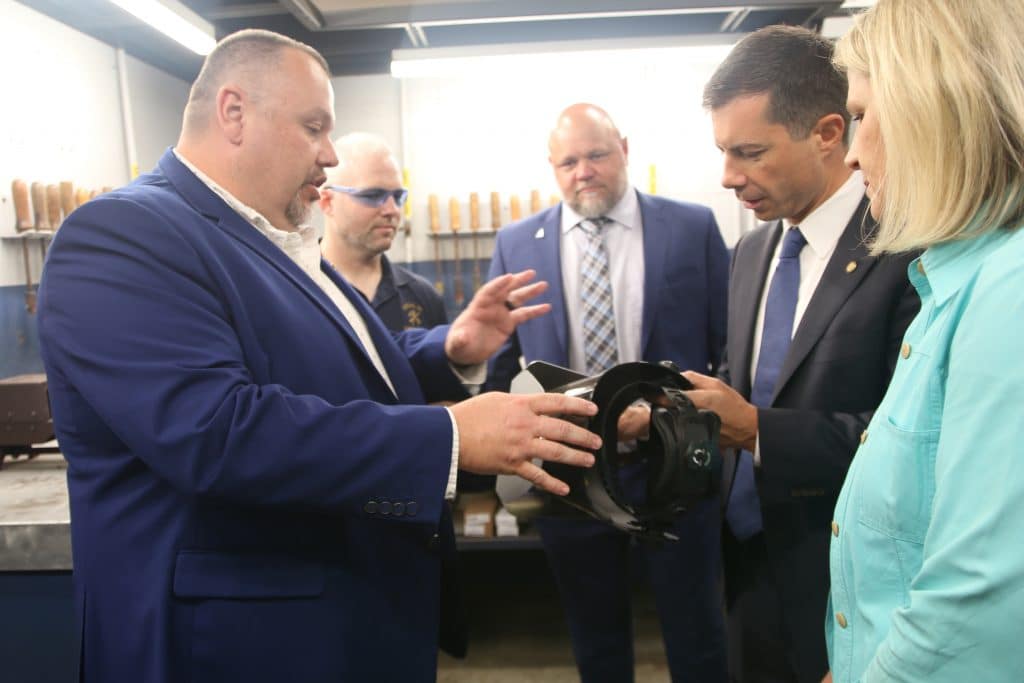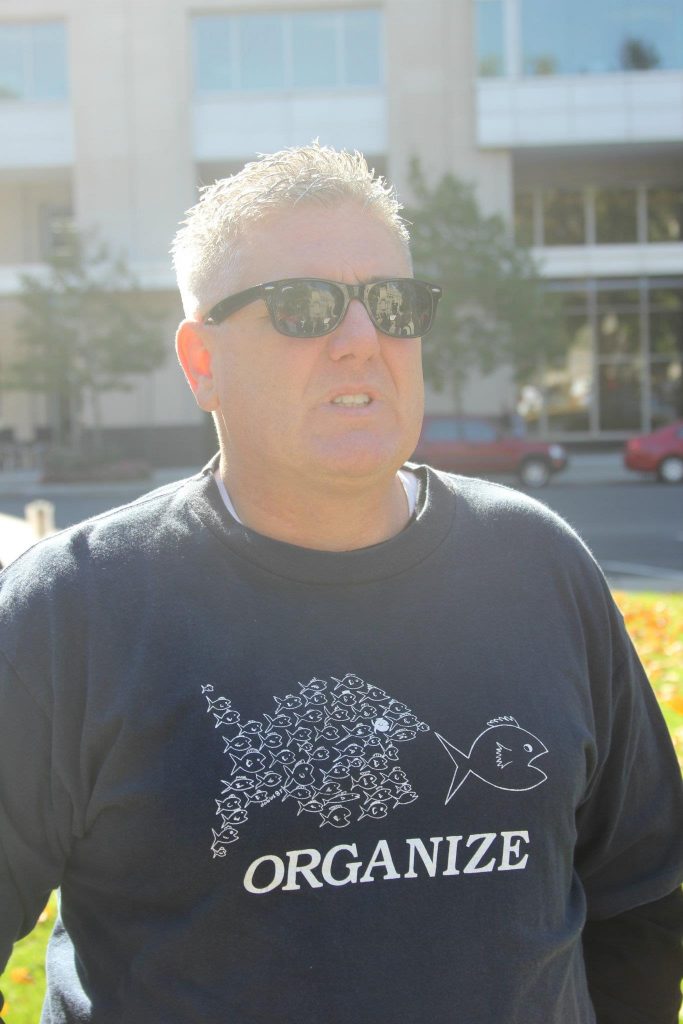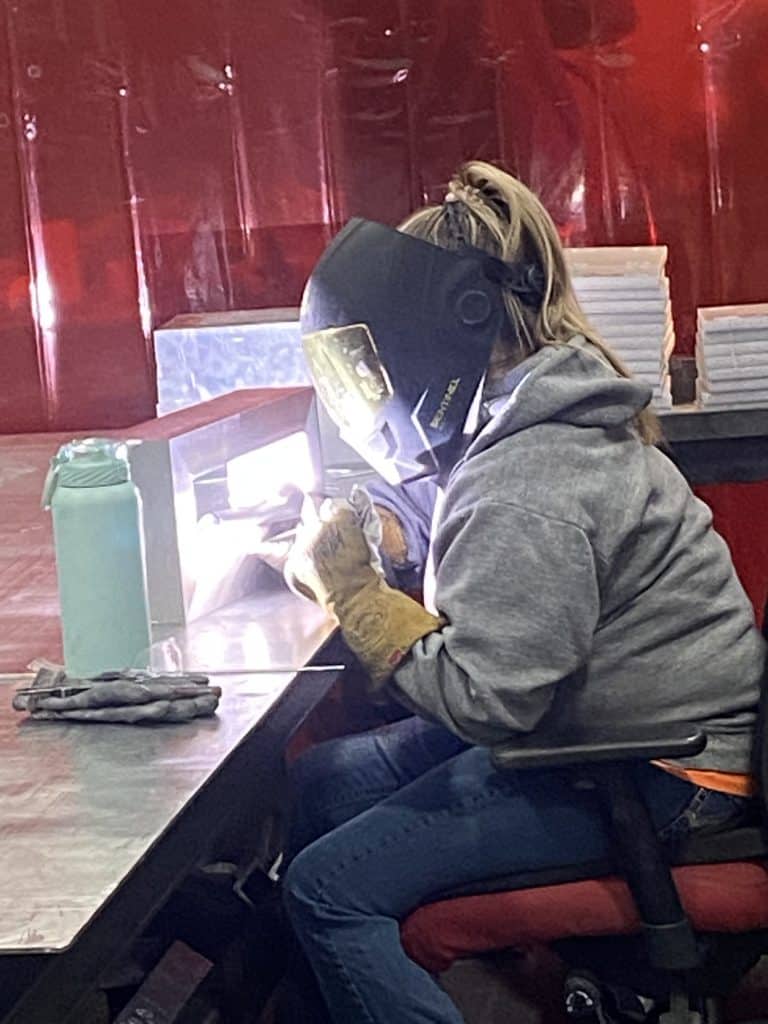SMART-TD kicked off 2025 with a bang, organizing two Genesee & Wyoming-owned railroad properties in the span of two weeks.
The first victory, at Wilmington Terminal Railroad, was won with a unanimous vote from railroaders who spent years dealing with a variety of anti-worker attacks.
Wilmington Terminal workers, who already live in the so-called “right-to-work” state of North Carolina, came under G & W ownership in 2005 — and found themselves facing anti-union intimidation from the get-go.
But new SMART-TD member Parker Greenough grew tired of G & W’s threats to shut down the terminal and switch the cars elsewhere if organizing talk became a reality.
“I always figured that [securing union representation] would be difficult and that it would take a long time, but we were finally ready,” Greenough said. “Enough is enough.”
“SMART has negotiated some great agreements on G & W properties,” McCray said. “These guys see that and what they’re missing out on and what a union can do for you.”
After having important conversations with coworkers, Greenough and his colleagues decided that they were ready to stand up to G & W’s endless stream of scare tactics and join a union.
There was just one problem: He didn’t know exactly where to start.
A Friday night Google search led him to SMART-TD, and he immediately made a call to the organizing department. By Monday morning, he was on the phone with General Committee 433 Vice Chair Andy Goeckner, who asked Greenough what he and his brothers needed. Authorization cards were in the mail to them that same day.
Crucial support also came from TD Local 1105 (Wilmington, N.C.) President Mike Stafford. He was present during an initial town hall on SMART-TD membership and provided invaluable help as the vote approached.
“I was shocked at how easy SMART-TD and Andy made this process,” Greenough noted. “We could tell that he was excited to be in this fight with us, and that made us even more motivated to organize.”
G & W predictably and blatantly engaged in further union busting, attempting to swing the vote against SMART-TD supporters. Management was rebuffed with a unanimous vote in favor of unionization.
Vice Chair Goeckner then walked the new members through the process of filing the correct documentation with the Department of Labor and other federal organizations.
Fellow North Carolinian Todd McCray, who hails from the CSX general committee, helped Wilmington Terminal navigate the process at the state level, a responsibility that he wasn’t required to assume.
“Todd’s not an organizer,” Goeckner pointed out. “Being from the same state and having the knowledge to make it happen, he just wanted to help his brothers secure the protection and respect that they deserve. He went above and beyond his job description to bring these guys into our SMART-TD family.”
McCray believes that the vote is a true reflection of the union difference.
“SMART has negotiated some great agreements on G & W properties,” McCray said. “These guys see that and what they’re missing out on and what a union can do for you.”
Connecticut Southern workers organize for change
Just days after their union siblings at the Wilmington Terminal Railroad, workers at Connecticut Southern Railroad — another Genesee & Wyoming subsidiary — joined SMART-TD in a nearly unanimous vote.
Connecticut Southern workers were previously under an umbrella agreement with the Brotherhood of Locomotive Engineers (BLET), which benefits some (but not necessarily all) properties that it covers.
With only 15 members in train and engine service, the Connecticut Southern members often felt like they were left in the dark and didn’t have their needs fully addressed.
“Looking at our own situation, we had to say, ‘Hey, are we getting our bang for our buck?’” said Garrett Desjardins, who was the local chairperson while they were represented by the BLET.
Tired of feeling like they weren’t being heard, our new brothers reached out to SMART-TD.
GCA 687 Associate Chairperson Nick Greficz assisted with the organizing efforts.
“[Joining SMART-TD] wasn’t a knee-jerk reaction,” Greficz emphasized. “There was some apprehensiveness about the contracts in place, the longevity of the contracts, and there was some misinformation that was being spread.”
Discussions with Local Chair Matt Pietrzak from Local 352 (West Springfield, Mass.) eased many of the workers’ worries. Pietrzak knew most of TD’s new members before the switch.
“We worked side-by-side with those guys,” he said.
“I see [Pietrzak] almost every day when I’m at work,” Desjardins added. “We just met each other through doing the job, and you meet good people along the way. So it almost seemed like a no-brainer for us because our representation is right there.”
Connecticut Southern workers made a strong impression on Greficz throughout the organizing process — their professionalism and solidarity as a unit helped achieve the overwhelming victory. He specifically conveyed how proud he is of Pietrzak, who is now preparing to become an official organizer, for his leadership throughout the campaign.
“It’s a true story of organizing from the rocks, because he wasn’t an organizer,” Greficz explained. “It doesn’t matter what your title is … everybody is an organizer at the end of the day.”




